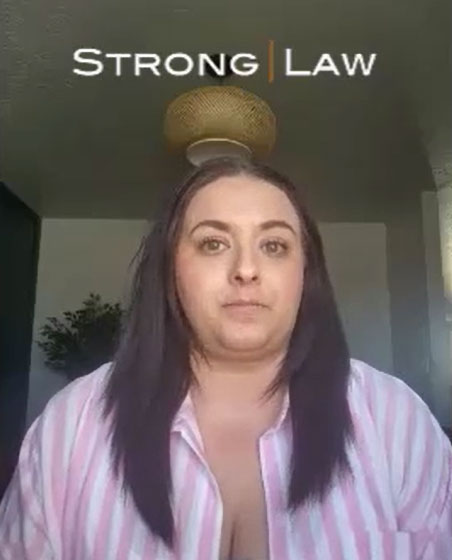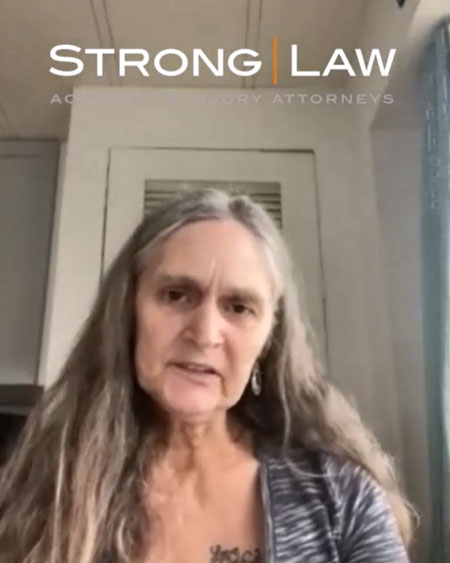
Denver Personal Injury Lawyer
Denver personal injury lawyers fight for maximum compensation while you recover from accidents, negligence, and wrongdoing across Colorado.
How a Denver Personal Injury Lawyer Can Help After a Serious Accident
Denver is one of the fastest-growing cities in the Rocky Mountain region. With booming tech, tourism, and construction industries, the Mile High City sees heavy traffic on I-25, I-70, and busy arteries like Colfax Avenue and Federal Boulevard.
Unfortunately, the influx of residents, tourists, and commercial vehicles comes with a price: more accidents.
Recent state data show more than 15,700 motor vehicle crashes occurred in Denver in 2024. These crashes led to 63 traffic fatalities and 665 serious injuries, including 200 non-motorists.
Dangerous intersections such as I-70 & North Peoria Street, South Federal Boulevard & West Alameda Avenue, and I-25 & Yale Avenue rank among the city’s top crash hotspots.
Beyond traffic collisions, Denver residents also suffer injuries in slip-and-fall accidents, dog attacks, nursing home neglect, defective products, and construction mishaps.
If someone else’s carelessness caused your injuries, you have the right to seek compensation for your medical bills, lost income, and pain and suffering.
At Strong Law Accident & Injury Attorneys, we dedicate our practice to helping injured Coloradans. Our legal team understands Denver’s courts, neighborhoods, and roadways, and we have recovered millions of dollars for clients throughout Colorado.
We handle a wide range of injury claims, including car and truck collisions, premises liability cases, dog bites, catastrophic injuries, and wrongful death claims.
This page explains how Strong Law Accident & Injury Attorneys help people in Denver who were hurt in many different situations.
These include car accidents, injuries on someone else’s property, dog bites, unsafe products, nursing home abuse, and serious or life-altering injuries.
It highlights our 98% success rate, local experience, contingency-fee structure, and full-service advocacy. You will also find Colorado-specific legal rules, such as modified comparative negligence, filing deadlines, and limits on noneconomic damages.
In addition, this page explains what to do after an accident, the types of damages you may recover, answers to common questions, and links to related Denver personal injury practice areas. You are also invited to request a free consultation.
Watch: Why saying “I’m fine” after an accident can hurt your claim — and what you should do instead.
If your incident involved a vehicle or another specific injury, explore our related Denver resources, including our Denver car accident lawyer, Denver truck accident lawyer, Denver motorcycle accident lawyer, and Denver wrongful death lawyer pages.
Call us today at 720-738-4913 for a free consultation with a Denver personal injury attorney who understands our community and local courts.

Contents

Why Choose Strong Law for Your Denver Personal Injury Case
Proven results: We maintain a 98 percent success rate in personal injury claims and have recovered substantial settlements and verdicts for clients throughout Colorado. Clients who begin by searching “best personal injury lawyer Denver” or “top personal injury lawyer in Denver” often choose our firm for our results and service.
Local knowledge: Our attorneys live and work in the Denver metro area.
We understand the city’s traffic, medical services, and court system. We also know how juries see cases from the Front Range.
Contingency fees: You pay nothing up front. We only collect a fee if we recover compensation for you.
Personal attention: Our lawyers provide responsive, oneonone service. We return calls promptly, keep you informed and treat every client like family.
Full-service help: We look into the accident, keep evidence safe, talk to insurance companies, file lawsuits, and take cases to court. We take care of everything for your claim.
Explore our related practice areas for car accidents, truck accidents, motorcycle accidents and wrongful death.
Common Types of Personal Injury Cases in Denver
Personal injury law encompasses many types of harm caused by negligence or wrongdoing. In Denver, some of the most frequent sources of claims include:
Motor Vehicle Accidents
Busy interstates like I25, I70 and I225, as well as congested urban streets, make traffic collisions the most common injury claims. Crashes often involve speeding, drunk driving or texting behind the wheel.
In Colorado, you usually have two years to file personal injury claims. However, if your claim is about a motor vehicle accident, you have three years.
Visit our Denver car accident lawyer page for more details.
Truck Accidents
Commercial trucks can weigh up to 80,000 pounds. Fatigue, improper loading, brake failures and speeding often cause devastating wrecks. Our Denver truck accident lawyer team obtains driver logs, blackbox data and maintenance records to pursue claims against trucking companies, drivers, cargo loaders and manufacturers.
Motorcycle, Bicycle & Pedestrian Accidents
Riders and walkers have little protection in a collision with a vehicle. Distracted drivers, unsafe lane changes and failure to yield at crosswalks leave vulnerable road users with lifechanging injuries. We help victims of twowheel and pedestrian crashes recover damages and coordinate claims with uninsured and underinsured motorist coverage. Learn more on our Denver motorcycle accident, Denver bicycle accident and Denver pedestrian accident pages.
Slip and Fall / Premises Liability
Under Colorado’s Premises Liability Act, property owners must keep their property safe. Their responsibilities change depending on if a person is an invitee, licensee, or trespasser.
Dangerous conditions like wet floors, icy sidewalks, uneven pavement, broken handrails and poor lighting often cause injury. Explore our Denver slip and fall lawyer and premises liability lawyers pages.
Dog Bites and Animal Attacks
Colorado imposes strict liability on dog owners for serious injuries or deaths caused by bites. You can recover economic damages without proving the owner knew the dog was vicious, with exceptions for trespassing, provocation or working dogs. Our Denver dog bite lawyer team seeks compensation for medical care, reconstructive surgery, scarring, emotional trauma and lost income.
Nursing Home Abuse & Neglect
Neglect and abuse in nursing homes and assisted living places can cause falls, bed sores, malnutrition, and other injuries.
We hold negligent care facilities accountable when they fail to protect vulnerable residents. See our Denver nursing home abuse lawyer page.
Product Liability
Manufacturers and sellers must ensure products are safe when used as intended. Defective auto parts, appliances, toys, medical devices and industrial equipment can cause severe injuries or fires. Our Denver product liability lawyer team investigates design flaws, manufacturing defects and failuretowarn claims to pursue damages.
Catastrophic, Brain & Spinal Injuries
Traumatic brain injuries, spinal cord damage, amputations and severe burns require lifelong care and dramatically affect your quality of life. Our Denver brain injury lawyer, spinal injury lawyer and catastrophic injury lawyer
pages provide additional information.
Frequently Asked Questions
What is my personal injury case worth?
The value of your case depends on factors like the severity of your injuries, the amount of your medical bills, your lost wages, the impact on your future earning capacity and whether you suffer permanent disabilities. Our attorneys analyse all of these elements to demand fair compensation.
Will my case go to court?
Most personal injury cases settle out of court. However, if the insurance company refuses to offer a fair settlement, our trial lawyers are ready to file a lawsuit and present your case to a jury.
What if the negligent party has no insurance?
You may be able to recover through your own uninsured/underinsured motorist coverage, medical payments coverage or from other liable parties. We explore every potential source of compensation.
How long do I have to file a claim?
As noted above, most negligence claims must be filed within two years, and motor vehicle cases have a threeyear limit. Speak with an attorney promptly to avoid missing important deadlines.
Can I recover damages if I am partly at fault?
Yes. As long as your share of fault is less than 50 percent, you can recover damages under Colorado’s modified comparative negligence law. Your award will be reduced by your percentage of fault.

We’ve helped thousands of accident victims like you
we win
98%
4.9
stars
over
2,000

“Very professional, and treated me as an equal.”
"Just wanted to say thank you to Jed and his team at Strong Law. Not only was I happy with the outcome, but the entire process as a whole. I would definitely recommend this firm to anyone. Thanks again."
“Unbelievable work!”
"I had a claim involving my own insurance company. I tried to negotiate with them, and they completely denied my claim – two times. I then hired Strong Law, and the change was instant. The insurance company immediately began negotiating, and Jed was able to secure an unbelievably good settlement. I will never again attempt to take-on an insurance company without Strong Law in my corner. Thank you!"


“I got justice and awesome compensation.”
"I hired Strong Law after my car accident. Jed and his team worked hard on my case. They were professional and compassionate through my surgery and as I recovered, and they were awesome on communication. I got justice and awesome compensation. I would recommend Strong Law to anyone in my situation."

Injuries and Damages
Personal injuries can lead to a wide range of physical and emotional harm, including:
Broken bones and fractures happen when the bone cracks. Traumatic brain injuries and concussions can cause brain damage. Spinal cord injuries can lead to paralysis. Soft-tissue injuries include sprains, strains, and whiplash. Burns and cuts can also cause scarring. Internal organs can be damaged in accidents. Psychological trauma can lead to PTSD.
You may be entitled to compensation for:
- Medical expenses: emergency care, surgery, hospitalization, rehabilitation, medication and future treatment
- Lost wages and reduced earning capacity: wages you miss while recovering and any longterm impact on your ability to work
- Pain and suffering: compensation for physical pain and emotional distress
- Property damage: repair or replacement of your vehicle or other property
- Loss of enjoyment of life: inability to engage in hobbies and activities you once loved
- Disfigurement and permanent disability: damages for scarring, amputations or longterm impairments
- Wrongful death damages: funeral costs, loss of financial support and loss of companionship for surviving family members
Colorado caps noneconomic damages (pain and suffering) at $250,000, which may be increased to $500,000 with clear and convincing evidence, for cases filed before January 1 2025. For lawsuits filed between January 1 2025 and January 1 2026, the cap rises to $1.5 million. These caps do not apply to economic damages like medical bills or lost income.
Colorado’s Comparative Negligence Rule
Colorado operates under a modified comparative negligence system. Under C.R.S. § 1321111, you can still recover damages if your own negligence is less than the defendant’s. A judge or jury will assign each party a percentage of fault. If your share of fault is 50 percent or greater, you cannot recover damages; if it is 49 percent or less, your award will be reduced by that percentage. Our attorneys work to minimize any allegations of comparative fault and maximize your recovery.
Statute of Limitations & Legal Deadlines
Filing your claim on time is crucial. In Colorado:
- General negligence and premises liability: You must file within two years of the injury.
- Motor vehicle accidents: Claims involving bodily injury or property damage from the operation of a motor vehicle must be filed within three years.
- Wrongful death: You typically have two years from the date of death.
Special rules and shorter deadlines may apply if a government entity is involved. Missing the statute of limitations almost always results in dismissal, so contact an attorney promptly after your injury.

Steps to Take After an Accident or Injury
- Seek immediate medical attention. Even minor injuries can become serious. A doctor will evaluate you, treat you and document your condition.
- Report the incident. Call 911 after a vehicle crash. For slipandfall accidents or dog bites, notify the property owner or manager and animal control.
- Gather evidence. Take photos of the scene, your injuries, vehicle damage, hazards and weather conditions. Collect names and contact information for witnesses and look for surveillance cameras.
- Avoid admitting fault. Do not apologize or speculate about blame. Stick to the facts when speaking with law enforcement and medical providers.
- Keep records. Save all medical bills, repair estimates, wage statements and correspondence with insurers. Keep a journal describing your pain levels and limitations.
- Consult a Denver personal injury attorney. A lawyer can preserve evidence, handle communications with insurers and ensure you meet legal deadlines. You can also consult a trusted Denver injury lawyer to help protect your rights early.
Speak With a Denver Personal Injury Lawyer Today
If you or a loved one has been injured because of someone else’s negligence, you deserve justice. Strong Law Accident & Injury Attorneys will review your case for free, explain your legal options and fight for every dollar you’re owed. We handle cases throughout Denver and the Front Range. There are no upfront fees, and you pay nothing unless we recover compensation for you.
We serve clients across Denver, CO and the Front Range. If you need a personal injury lawyer Denver CO or a personal injury attorney Denver CO, our team is ready to help. Looking for a denver personal injury lawyer as you compare options for a personal injury lawyer Denver Colorado? We’re here for you.
Call us at 720-738-4913 or request a free consultation online.

Contact us
Our team is standing by to help you.




